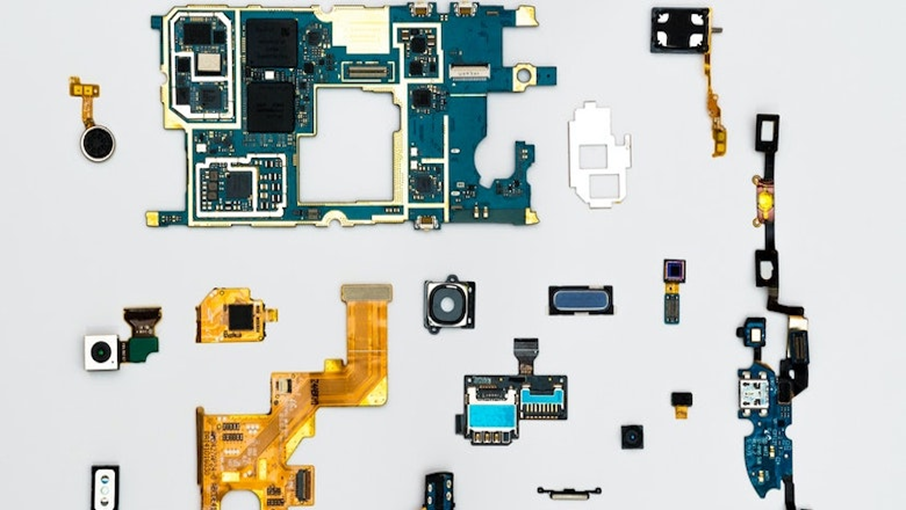Breaking Down the Tech Trade War

Estimated reading time: 4 minutes
Costly Conflict
China and the United States are competing to become the world’s premier tech superpower, a race that could have profound effects on the development of everything from EVs to AI.
As a result, supply chains and research and development have become increasingly siloed, as both nations try to get ahead with home-grown resources. And there are trade implications, too: Reduction in tech-related trade could cost global GDP up to around $1 trillion a year, according to The Economist, citing the International Monetary Fund.
And the trade war probably won’t end soon. Last month, Chinese President Xi Jinping told the Dutch Prime Minister Mark Rutte ”no force can stop the pace of China’s scientific and technological progress.” Back stateside, a tough stance on China is one of the few things that unites Democrats and Republicans in Washington.
App Battle
Last month, Congress passed legislation forcing China-owned ByteDance to sell TikTok. Before the bill went through, China told Apple (AAPL) to remove WhatsApp, Threads, Signal, and Telegram from its App Store.
While annoying to users and bad for tech firms, the fight over chips could be even more consequential. The United States already limited the sale of chips to China. In response, China curbed exports of germanium and gallium, essential elements for making semiconductors.
Chips Ahoy
When computer chips were in short supply during the COVID-19 pandemic, production of cars, household appliances, game consoles, and more slowed to a crawl. That gave consumers a taste of how vital they are to 21st century life. Now, with the rise of generative AI, which requires vast numbers of advanced processors, chips are even more in demand.
In 2022, President Joe Biden signed the CHIPS and Science Act, which committed billions of dollars to boost domestic manufacturing of chips. It aimed to reduce dependence on other countries for chips, especially Taiwan, home to semiconductor giant TSMC (TSM), which is now working to complete a giant facility in Arizona.
The Inflation Reduction Act (IRA) supercharged the solar panel, battery, and EV industries in the United States, while Washington maintained high tariffs on those same products from China.
Meanwhile, Chinese automakers and battery manufacturers are looking to speed ahead of their American competitors. Chinese electric car maker BYD briefly took the crown of top EV seller in the world from Tesla (TSLA), and Shanghai-listed CATL, the largest battery maker in the world, showed off a product last month that could provide an electric vehicle with enough juice for a 370-mile trip in just 10 minutes.
Both countries are investing heavily in tech infrastructure. But critics of protectionist policies have argued that it comes at the cost of global economic progress, while some environmentalists have said it’s also hampering the fight against climate change.
Disclaimer
SoFi Securities (Hong Kong) Limited and its affiliates (SoFi HK) may post or share information and materials from time to time. They should not be regarded as an offer, solicitation, invitation, investment advice, recommendation to buy, sell or otherwise deal with any investment instrument or product in any jurisdictions. Keep in mind that investing involves risk, and past performance of an asset never guarantees future results or returns. It’s important for investors to consider their specific financial needs, goals, and risk profile before making an investment decision.
SoFi HK does not make any warranties about the completeness, reliability and accuracy of this information and will not be liable for any losses and/or damages in connection with the use of this information.
The information and materials may contain hyperlinks to other websites, we are not responsible for the content of any linked sites. The information and analysis provided through hyperlinks to third party websites, while believed to be accurate, cannot be guaranteed by SoFi HK. These links are provided for informational purposes and should not be viewed as an endorsement. The risk involved in using such hyperlinks shall be borne by the visitor and subject to any Terms of Use applicable to such access and use.
Any product, logos, brands, and other trademarks or images featured are the property of their respective trademark holders. These trademark holders are not affiliated with SoFi HK or its Affiliates. These trademark holders do not sponsor or endorse SoFi HK or any of its articles.
Without prior written approval of SoFi HK, the information/materials shall not be amended, duplicated, photocopied, transmitted, circulated, distributed or published in any manner, or be used for commercial or public purposes.

About SoFi Hong Kong
SoFi – Invest. Simple.
SoFi Hong Kong is the All-in-One Super App with stock trading, robo advisor and social features. Trade over 15,000 US and Hong Kong stocks in our SoFi App now.


